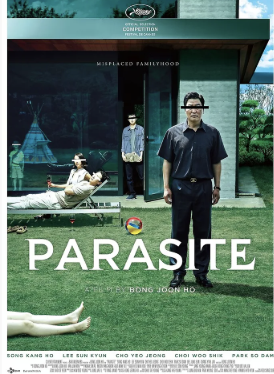The presence or absence of different types of background noise can and does affect our ability to concentrate and perform cognitive tasks well.
The presence of “white noise” resulted in superior word learning relative to silence. This was proven in a study which showed more effective recall over time in the white noise group than the noise group. As of now, it is considered that noise has negative effects on hearing and health. This negative effect can be extrapolated to poor performance in cognitive function. However, experimental results show that certain noise can enhance environmental comfort. It is feasible that different types of noises can improve productivity and increase cognitive function. Some studies have shown that white noise exposure can serve as a masking sound and improve work efficiency resulting in an increase of performance. Evidence suggests that the use of “color noise” such as white noise may improve workers and students ability to perform better when it comes to cognitive executive function.
Background or low-level noise often disrupts people’s concentration. Several studies have shown that white noise can induce the release of cortisol, a hormone that helps restore homeostasis (balance) in the body after a bad experience. Excess cortisol impairs function in the prefrontal cortex-an emotional learning center that helps to regulate “executive” functions such as planning, reasoning, and impulse control. Some recent evidence indicates that the prefrontal cortex also stores short-term memories.
Changes to this region, therefore, may disrupt a person’s capacity to think clearly and to retain information. In addition, recent research suggests that noise induced stress may decrease dopamine availability in the prefrontal cortex, where the hormone controls the flow of information from other parts of the body. As a result, the stress that results from background noise may decrease higher brain function which then will impair learning and memory.
There are some suggestions that white noise might have some value if there is general room noise that needs to be masked. This might be especially true for people with attention deficits who are easily distracted by noise. Sometimes soft background noises that are more soothing and relaxing and provide a uniform background sound may also help concentration. Of course silence, when attainable, should also allow people to concentrate as well.
Distracting background noises are able to redirect our attention and divert brain activity from achieving its optimal performance. So reducing background noise or using a suitable masking noise will improve cognitive ability.
Research shows that listening to music and background noise can improve cognitive performance, improve task performance and concentration. Different types of music will have different types of results on peoples’ mood and cognitive performance. Some music and background noise can actually be harmful to your concentration, while other times helpful. Sometimes silence, in certain situations, is the best option.
The decibel level of the background environmental noise, also has been proven to have an effect on a students level of attention, cognitive function, and ability to recall.
Listening to background music had varying effects on college students’ performance when assessing their cognitive function across different types of music genres. Certain types of music were more advantageous than others based on their familiarity with the subjects. Studying in silence was also compared in this study and was determined to yield the best results.
When a person is exposed to different background noise environments (no background noise, white noise, pop music, aggressive music, and random office noises) when performing cognitive tasks requiring concentration, the subject did not perform best in an environment with white noise.
This apparently refutes the hypothesis that a subject would perform best in an environment of white noise. The subject performed best in the subjective score category in the ambient noise environment. This was followed by pop music, white noise, aggressive music, and finally, busy office noise. The subjective score category measured the subject’s perceived ability to concentrate in each environment. The scores in the white noise environment were not as high as anticipated and did not appear to aid the subject’s perceived ability to concentrate. It was also very clear that the aggressive music and busy office noise environments had the worst scores, which were significantly less than the other three categories (ambient noise, white noise, and pop music).
When analyzing the objective score data obtained on reading comprehension worksheets, the hypothesis that the white noise environment would yield the best scores was again refuted. The white noise environment did yield good scores, but not as high as the pop music environment. This finding was somewhat surprising but understandable. Other studies have shown that certain subjects perform better in environments where they are most comfortable. Certain subjects do best in ambient noise environments with minimal distractions. Others do well with white noise to help them focus, while others perform well with soft pop music, which they find helpful to keep on task. The results of this study are limited to the preferences of the one test subject in its design.
Based on the findings of this study and the various studies referenced in this report, it is likely that background noise plays a role in one’s ability to concentrate and perform well in cognitive tasks. Certain background noises (aggressive music and busy office noise) are clearly distracting and decrease performance on a consistent basis, while many others are clearly helpful (pop music, ambient noise, white noise).
These findings suggest that an individual should test which background noise environment works best for that individual and use that environment to increase his or her cognitive performance best.






























